Why Is the Possibility of Revising Iran’s Nuclear Doctrine Raised
Strategic Council Online – Note: Iran has done more than its share for the nuclear non-proliferation regime.
Strategic Council Online – Note: Iran has done more than its share for the nuclear non-proliferation regime.
Strategic Council Online: The President of the Strategic Council on Foreign Relations stated: “The US State Department spokesperson, after my interview with Al Jazeera, reiterated their past remarks, stating that they won’t allow Iran to build nuclear weapons, but ultimately said diplomacy is the best approach. Yes, we too prefer diplomacy since based on the Fatwa of our Supreme Leader are not for nuclear weapons; rather, we are advocates of diplomacy to make the Middle East a nuclear-free region. But, in case the Israeli regime threatens us with nuclear weapons, we surely cannot sit idle and wait for permission from others.”
Strategic Council Online – Opinion: The strategic Strait of Bab al-Mandab and the Red Sea have recently faced serious problems and crises due to the Gaza war. This is because of the protectionist approach of the Yemeni army forces toward Palestine, which, since the beginning of the Israeli regime’s attacks on the Gaza Strip, has included attacks on ships bound for or from the origin of the regime in the Red Sea.
They said they will continue their attacks until the Israeli regime’s military aggression in the Gaza Strip ends. The United States, as the most important supporter of the Israeli regime, was the first country to respond to this policy of Yemeni army forces and tried to form a global coalition to counter these attacks under the cover of supporting freedom of navigation, which, of course, failed because of conflicts of interests of Western countries and ended in the actions of the US and British attacks on positions in Yemen. Of course, although European countries were not seriously involved in the American coalition, they have numerous and complex interests in this inflammatory, and as a result, have adopted a particular and independent approach.
Dr. Mohammad Mehdi Mazaheri – University Professor
Strategic Council Online – Interview: An expert on regional issues said Qatari authorities will definitely resist Western pressure to expel Hamas leaders from their territory, and probably the United States will not move towards a zero-hundred equation in this regard because if the Hamas leaders remain in Qatar, which is an ally of the United States, is better than moving to a country outside the power of the United States to exert pressure.
Strategic Council Online – Opinion: Student protests in America take on new dimensions every day.
Because the university enjoys higher public trust and social capital than other civil and social institutions and is, therefore, more effective, the current protests put the U.S. government in a “difficult situation” that is clear in the statements of current and former U.S. officials.
Hamid Khoshayand – International Affairs Expert
Strategic Council Online: The 3rd Iranian-Arab Dialogue Conference, titled “For Cooperation and Interaction,” will be inaugurated on April 23rd in Tehran, hosted by the Strategic Council on Foreign Relations.
Strategic Council Online – Interview: An expert on Caucasus issues said that Swedish Foreign Minister Tobias Billström recently announced that EU states plan to include the ban on the supply of liquefied natural gas (LNG) in the sanctions against Russia.
Strategic Council Online—Interview: An expert on strategic issues said: The US Navy has put a project on the agenda to convert surplus oil platforms into mobile missile defense bases in the Pacific Ocean and face China’s threats. These platforms are supposed to be deployed in response to China’s growing missile threats in the Pacific region. Platforms converted into missile defense bases are expected to play an important role in increasing US air defense capabilities and assisting in the country’s strike missions.

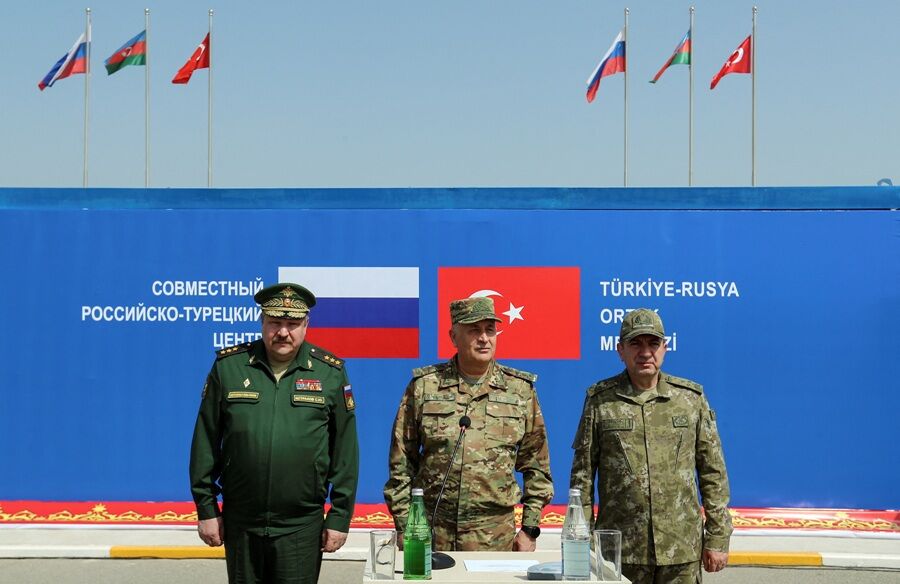
Strategic Council Online – Interview: An expert on Caucasus affairs said: Following news reports that the Kremlin has implicitly confirmed that Russian peacekeepers are withdrawing from the Nagorno-Karabakh region and taking their weapons and equipment with them, this question is seriously raised: Does Russia want to hand over the South Caucasus region to the West?
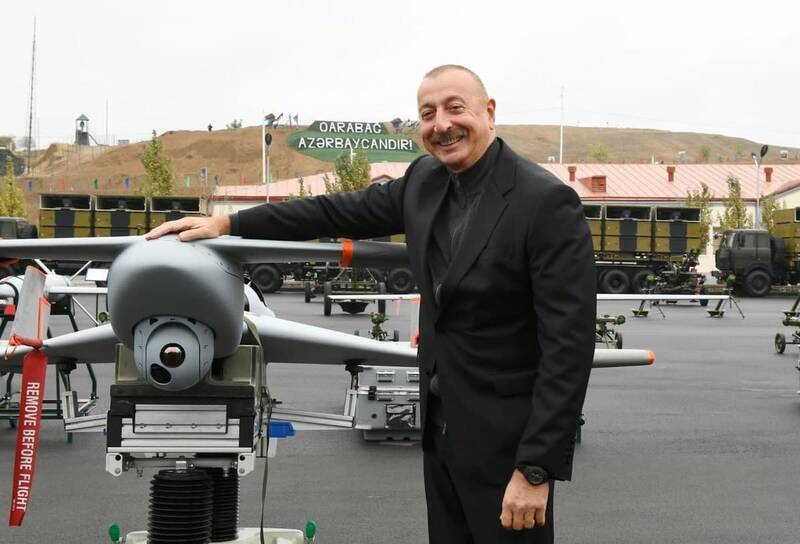
Strategic Council Online—Opinion: In recent months, we have seen Armenia and Azerbaijan strengthen new military-security arrangements. The two countries are developing military and security relations and exchanges with European and extra-regional countries within an “escalating process.” Strengthening the weapons arsenals, reviewing membership in some military pacts, and increasing military purchases are among these measures.
Barsam Mohammadi- Expert of regional issues
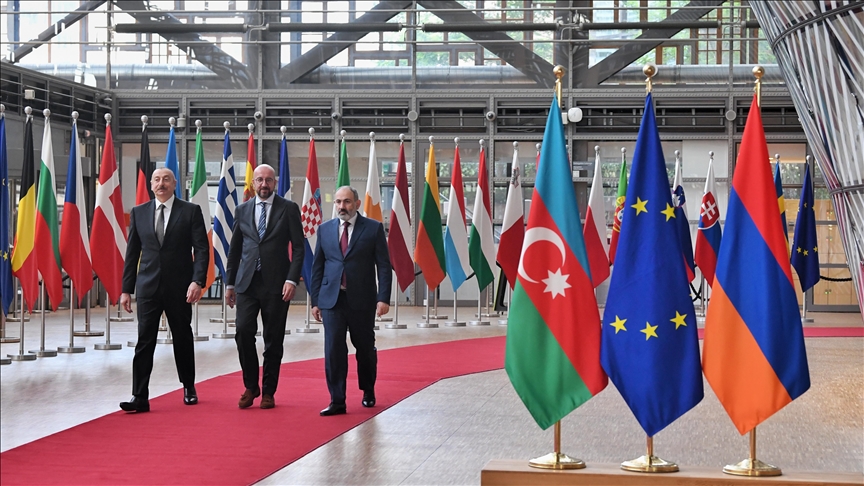
Strategic Council Online—Interview: The former ambassador of Iran to the Republic of Azerbaijan said that the positions of the European Union’s foreign policy in support of Armenia and opposition to the Republic of Azerbaijan are in the context of challenging Russia’s role in the developments in the South Caucasus and also in the continuation of Europe’s conflict with Russia over Ukraine.
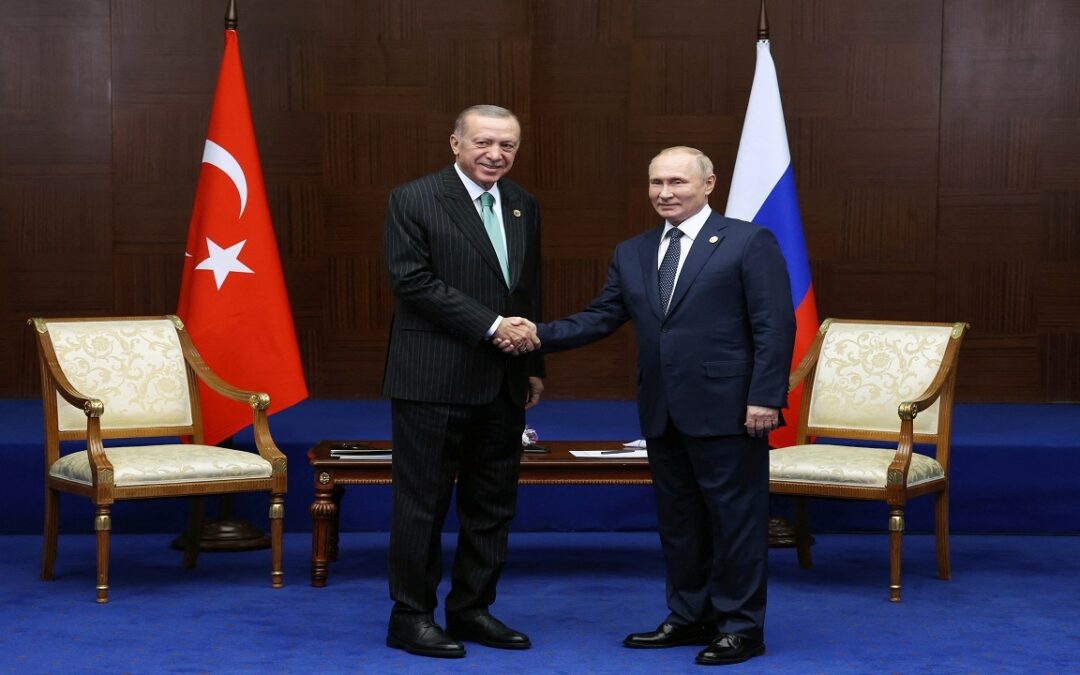
Strategic Council Online – Interview: A researcher of the Research Center of the Expediency Council, while emphasizing the importance of the recent meeting between the presidents of Turkey and Russia in Sochi, said: The crisis in Ukraine and the pressures of the West have negatively affected Turkey’s balanced approach towards the West and Russia, and that the Russians are doubtful about Turkey’s future policies.
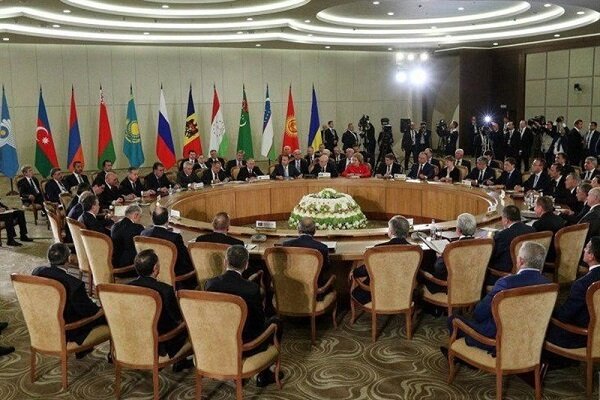
Strategic Council Online- Opinion: In addition to bilateral relations, regionalism as well as linking the economic interests of Northern neighbors to Iran’s potentials can bring more achievements.
Mehdi Khoorsand, Expert on China and Eurasia affairs
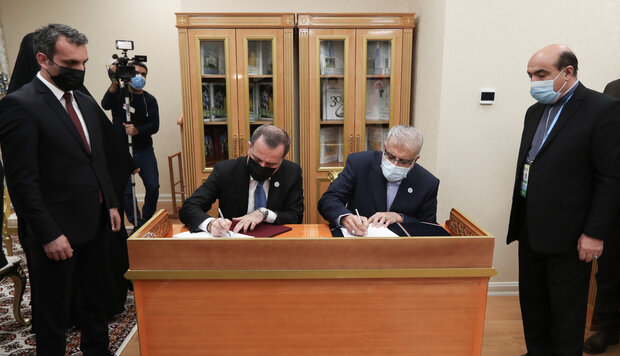
Strategic Council Online – Opinion: The importance, opportunities and benefits that Iran’s gas swap agreement with Turkmenistan and the Republic of Azerbaijan enjoys have caused concern for the Zionist regime, as the agreement is in opposition to the Israeli plans in the region that seek to destroy and weaken Iran’s foreign relations, especially with Central Asian and South Caucasus countries.
Barsam Mohammadi – Expert on regional affairs
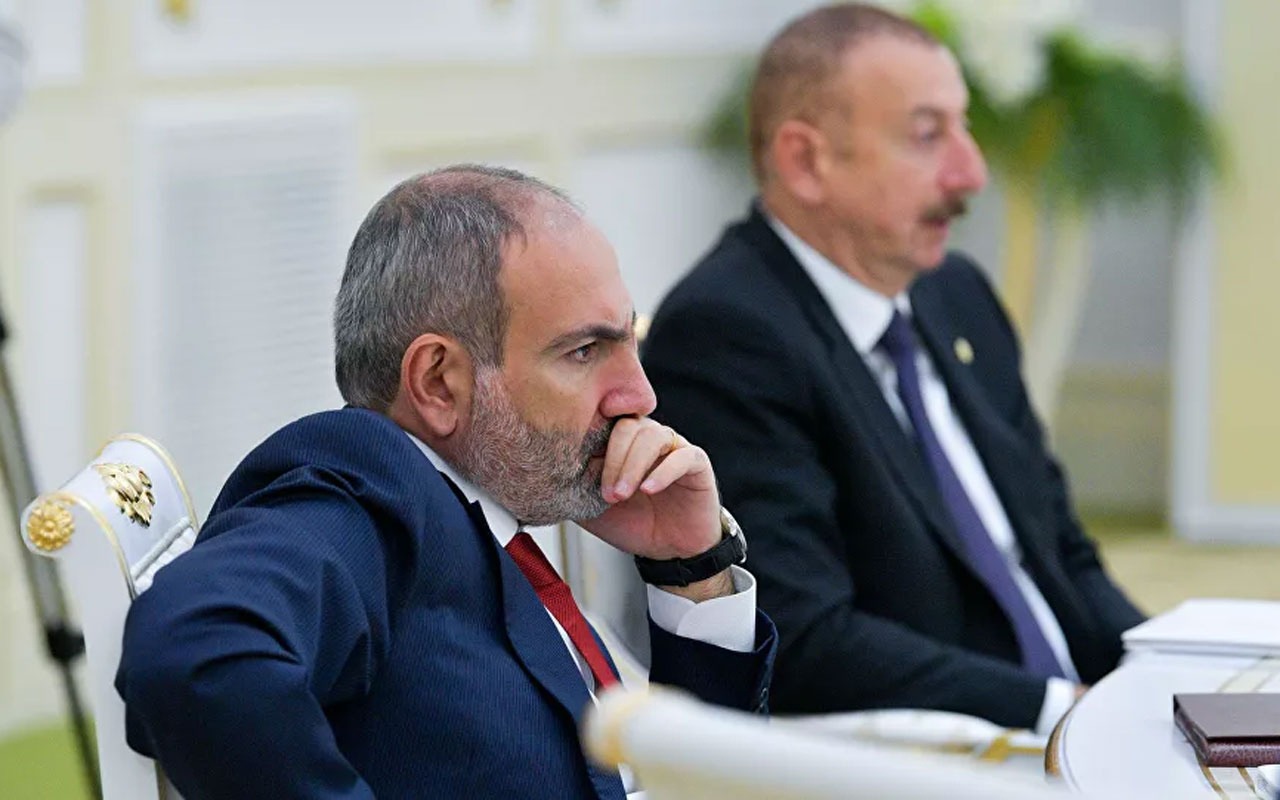
Strategic Council Online—Interview: An analyst of Caucasus issues says it is necessary to maintain the balance of power in the south Caucasus region, adding that if with the disruption of the balance of power in the region, issues proceed in a competitive manner among the actors, every cognitive error and miscalculation may cause great tensions in the region and even lead to a military confrontation.
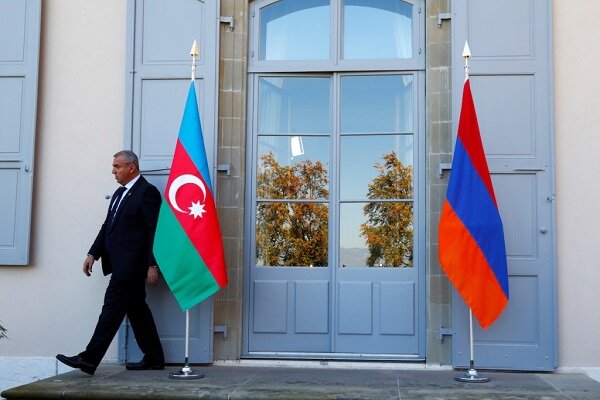
Strategic Council Online—Interview: An analyst of the Caucasus issues says any efforts to change international borders and geopolitics of the region are considered as redline for Iran, adding that “it is expected that the emphasis of the Azerbaijan Republic on the 3+3 model of cooperation will be beyond the policies applied by this country and we would witness measures which would indicate this country is interested in collective and regional political cooperation instead of reliance on the Zionist regime or foreign powers”.

Strategic Council Online – opinion: Turkey has conducted two separate military exercises with the Republic of Azerbaijan on the one hand and Pakistan and the Republic of Azerbaijan on the other hand, on limited land and sea scale. The Ankara government pursues specific targets of holding exercises that are geopolitically “purposeful” and “meaningful”, and the recent exercise is one of Turkey’s most important measures since the end of the Second Karabakh War.
Hamid Khoshayand – International affairs analyst
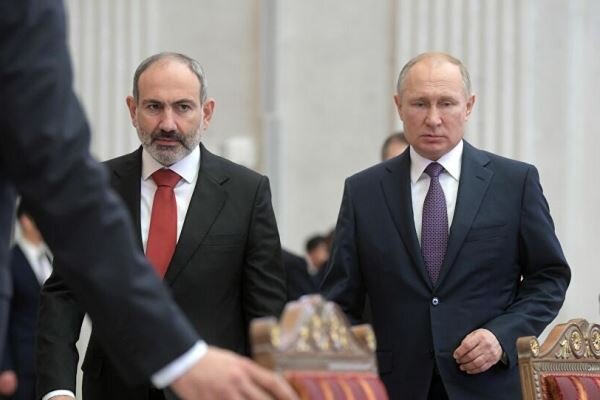
Strategic Council Online – Holding early parliamentary elections in Armenia on June 20 and victory of the “Civil Contract” Party led by “Nikol Pashinyan” with 53.92% of the votes can be studied in several ways.
Mehdi Khorsand – Expert on China and Eurasia affairs
Strategic Council Online – Note: Iran has done more than its share for the nuclear non-proliferation regime.
Strategic Council Online: The President of the Strategic Council on Foreign Relations stated: “The US State Department spokesperson, after my interview with Al Jazeera, reiterated their past remarks, stating that they won’t allow Iran to build nuclear weapons, but ultimately said diplomacy is the best approach. Yes, we too prefer diplomacy since based on the Fatwa of our Supreme Leader are not for nuclear weapons; rather, we are advocates of diplomacy to make the Middle East a nuclear-free region. But, in case the Israeli regime threatens us with nuclear weapons, we surely cannot sit idle and wait for permission from others.”
Strategic Council Online – Opinion: The strategic Strait of Bab al-Mandab and the Red Sea have recently faced serious problems and crises due to the Gaza war. This is because of the protectionist approach of the Yemeni army forces toward Palestine, which, since the beginning of the Israeli regime’s attacks on the Gaza Strip, has included attacks on ships bound for or from the origin of the regime in the Red Sea.
They said they will continue their attacks until the Israeli regime’s military aggression in the Gaza Strip ends. The United States, as the most important supporter of the Israeli regime, was the first country to respond to this policy of Yemeni army forces and tried to form a global coalition to counter these attacks under the cover of supporting freedom of navigation, which, of course, failed because of conflicts of interests of Western countries and ended in the actions of the US and British attacks on positions in Yemen. Of course, although European countries were not seriously involved in the American coalition, they have numerous and complex interests in this inflammatory, and as a result, have adopted a particular and independent approach.
Dr. Mohammad Mehdi Mazaheri – University Professor
Strategic Council Online – Interview: An expert on regional issues said Qatari authorities will definitely resist Western pressure to expel Hamas leaders from their territory, and probably the United States will not move towards a zero-hundred equation in this regard because if the Hamas leaders remain in Qatar, which is an ally of the United States, is better than moving to a country outside the power of the United States to exert pressure.
Strategic Council Online – Opinion: Student protests in America take on new dimensions every day.
Because the university enjoys higher public trust and social capital than other civil and social institutions and is, therefore, more effective, the current protests put the U.S. government in a “difficult situation” that is clear in the statements of current and former U.S. officials.
Hamid Khoshayand – International Affairs Expert
Strategic Council Online: The 3rd Iranian-Arab Dialogue Conference, titled “For Cooperation and Interaction,” will be inaugurated on April 23rd in Tehran, hosted by the Strategic Council on Foreign Relations.
Strategic Council Online – Interview: An expert on Caucasus issues said that Swedish Foreign Minister Tobias Billström recently announced that EU states plan to include the ban on the supply of liquefied natural gas (LNG) in the sanctions against Russia.
Strategic Council Online—Interview: An expert on strategic issues said: The US Navy has put a project on the agenda to convert surplus oil platforms into mobile missile defense bases in the Pacific Ocean and face China’s threats. These platforms are supposed to be deployed in response to China’s growing missile threats in the Pacific region. Platforms converted into missile defense bases are expected to play an important role in increasing US air defense capabilities and assisting in the country’s strike missions.


Strategic Council Online – Interview: An expert on Caucasus affairs said: Following news reports that the Kremlin has implicitly confirmed that Russian peacekeepers are withdrawing from the Nagorno-Karabakh region and taking their weapons and equipment with them, this question is seriously raised: Does Russia want to hand over the South Caucasus region to the West?

Strategic Council Online—Opinion: In recent months, we have seen Armenia and Azerbaijan strengthen new military-security arrangements. The two countries are developing military and security relations and exchanges with European and extra-regional countries within an “escalating process.” Strengthening the weapons arsenals, reviewing membership in some military pacts, and increasing military purchases are among these measures.
Barsam Mohammadi- Expert of regional issues

Strategic Council Online—Interview: The former ambassador of Iran to the Republic of Azerbaijan said that the positions of the European Union’s foreign policy in support of Armenia and opposition to the Republic of Azerbaijan are in the context of challenging Russia’s role in the developments in the South Caucasus and also in the continuation of Europe’s conflict with Russia over Ukraine.

Strategic Council Online – Interview: A researcher of the Research Center of the Expediency Council, while emphasizing the importance of the recent meeting between the presidents of Turkey and Russia in Sochi, said: The crisis in Ukraine and the pressures of the West have negatively affected Turkey’s balanced approach towards the West and Russia, and that the Russians are doubtful about Turkey’s future policies.

Strategic Council Online- Opinion: In addition to bilateral relations, regionalism as well as linking the economic interests of Northern neighbors to Iran’s potentials can bring more achievements.
Mehdi Khoorsand, Expert on China and Eurasia affairs

Strategic Council Online – Opinion: The importance, opportunities and benefits that Iran’s gas swap agreement with Turkmenistan and the Republic of Azerbaijan enjoys have caused concern for the Zionist regime, as the agreement is in opposition to the Israeli plans in the region that seek to destroy and weaken Iran’s foreign relations, especially with Central Asian and South Caucasus countries.
Barsam Mohammadi – Expert on regional affairs

Strategic Council Online—Interview: An analyst of Caucasus issues says it is necessary to maintain the balance of power in the south Caucasus region, adding that if with the disruption of the balance of power in the region, issues proceed in a competitive manner among the actors, every cognitive error and miscalculation may cause great tensions in the region and even lead to a military confrontation.

Strategic Council Online—Interview: An analyst of the Caucasus issues says any efforts to change international borders and geopolitics of the region are considered as redline for Iran, adding that “it is expected that the emphasis of the Azerbaijan Republic on the 3+3 model of cooperation will be beyond the policies applied by this country and we would witness measures which would indicate this country is interested in collective and regional political cooperation instead of reliance on the Zionist regime or foreign powers”.

Strategic Council Online – opinion: Turkey has conducted two separate military exercises with the Republic of Azerbaijan on the one hand and Pakistan and the Republic of Azerbaijan on the other hand, on limited land and sea scale. The Ankara government pursues specific targets of holding exercises that are geopolitically “purposeful” and “meaningful”, and the recent exercise is one of Turkey’s most important measures since the end of the Second Karabakh War.
Hamid Khoshayand – International affairs analyst

Strategic Council Online – Holding early parliamentary elections in Armenia on June 20 and victory of the “Civil Contract” Party led by “Nikol Pashinyan” with 53.92% of the votes can be studied in several ways.
Mehdi Khorsand – Expert on China and Eurasia affairs

Strategic Council Online – Interview: An expert on Caucasus affairs said: Following news reports that the Kremlin has implicitly confirmed that Russian peacekeepers are withdrawing from the Nagorno-Karabakh region and taking their weapons and equipment with them, this question is seriously raised: Does Russia want to hand over the South Caucasus region to the West?

Strategic Council Online—Opinion: In recent months, we have seen Armenia and Azerbaijan strengthen new military-security arrangements. The two countries are developing military and security relations and exchanges with European and extra-regional countries within an “escalating process.” Strengthening the weapons arsenals, reviewing membership in some military pacts, and increasing military purchases are among these measures.
Barsam Mohammadi- Expert of regional issues

Strategic Council Online—Interview: The former ambassador of Iran to the Republic of Azerbaijan said that the positions of the European Union’s foreign policy in support of Armenia and opposition to the Republic of Azerbaijan are in the context of challenging Russia’s role in the developments in the South Caucasus and also in the continuation of Europe’s conflict with Russia over Ukraine.

Strategic Council Online – Interview: A researcher of the Research Center of the Expediency Council, while emphasizing the importance of the recent meeting between the presidents of Turkey and Russia in Sochi, said: The crisis in Ukraine and the pressures of the West have negatively affected Turkey’s balanced approach towards the West and Russia, and that the Russians are doubtful about Turkey’s future policies.

Strategic Council Online- Opinion: In addition to bilateral relations, regionalism as well as linking the economic interests of Northern neighbors to Iran’s potentials can bring more achievements.
Mehdi Khoorsand, Expert on China and Eurasia affairs

Strategic Council Online – Opinion: The importance, opportunities and benefits that Iran’s gas swap agreement with Turkmenistan and the Republic of Azerbaijan enjoys have caused concern for the Zionist regime, as the agreement is in opposition to the Israeli plans in the region that seek to destroy and weaken Iran’s foreign relations, especially with Central Asian and South Caucasus countries.
Barsam Mohammadi – Expert on regional affairs

Strategic Council Online—Interview: An analyst of Caucasus issues says it is necessary to maintain the balance of power in the south Caucasus region, adding that if with the disruption of the balance of power in the region, issues proceed in a competitive manner among the actors, every cognitive error and miscalculation may cause great tensions in the region and even lead to a military confrontation.

Strategic Council Online—Interview: An analyst of the Caucasus issues says any efforts to change international borders and geopolitics of the region are considered as redline for Iran, adding that “it is expected that the emphasis of the Azerbaijan Republic on the 3+3 model of cooperation will be beyond the policies applied by this country and we would witness measures which would indicate this country is interested in collective and regional political cooperation instead of reliance on the Zionist regime or foreign powers”.

Strategic Council Online – opinion: Turkey has conducted two separate military exercises with the Republic of Azerbaijan on the one hand and Pakistan and the Republic of Azerbaijan on the other hand, on limited land and sea scale. The Ankara government pursues specific targets of holding exercises that are geopolitically “purposeful” and “meaningful”, and the recent exercise is one of Turkey’s most important measures since the end of the Second Karabakh War.
Hamid Khoshayand – International affairs analyst

Strategic Council Online – Holding early parliamentary elections in Armenia on June 20 and victory of the “Civil Contract” Party led by “Nikol Pashinyan” with 53.92% of the votes can be studied in several ways.
Mehdi Khorsand – Expert on China and Eurasia affairs
Strategic Council Online – Note: Iran has done more than its share for the nuclear non-proliferation regime.
Strategic Council Online: The President of the Strategic Council on Foreign Relations stated: “The US State Department spokesperson, after my interview with Al Jazeera, reiterated their past remarks, stating that they won’t allow Iran to build nuclear weapons, but ultimately said diplomacy is the best approach. Yes, we too prefer diplomacy since based on the Fatwa of our Supreme Leader are not for nuclear weapons; rather, we are advocates of diplomacy to make the Middle East a nuclear-free region. But, in case the Israeli regime threatens us with nuclear weapons, we surely cannot sit idle and wait for permission from others.”
Strategic Council Online – Opinion: The strategic Strait of Bab al-Mandab and the Red Sea have recently faced serious problems and crises due to the Gaza war. This is because of the protectionist approach of the Yemeni army forces toward Palestine, which, since the beginning of the Israeli regime’s attacks on the Gaza Strip, has included attacks on ships bound for or from the origin of the regime in the Red Sea.
They said they will continue their attacks until the Israeli regime’s military aggression in the Gaza Strip ends. The United States, as the most important supporter of the Israeli regime, was the first country to respond to this policy of Yemeni army forces and tried to form a global coalition to counter these attacks under the cover of supporting freedom of navigation, which, of course, failed because of conflicts of interests of Western countries and ended in the actions of the US and British attacks on positions in Yemen. Of course, although European countries were not seriously involved in the American coalition, they have numerous and complex interests in this inflammatory, and as a result, have adopted a particular and independent approach.
Dr. Mohammad Mehdi Mazaheri – University Professor
Strategic Council Online – Interview: An expert on regional issues said Qatari authorities will definitely resist Western pressure to expel Hamas leaders from their territory, and probably the United States will not move towards a zero-hundred equation in this regard because if the Hamas leaders remain in Qatar, which is an ally of the United States, is better than moving to a country outside the power of the United States to exert pressure.
Strategic Council Online – Opinion: Student protests in America take on new dimensions every day.
Because the university enjoys higher public trust and social capital than other civil and social institutions and is, therefore, more effective, the current protests put the U.S. government in a “difficult situation” that is clear in the statements of current and former U.S. officials.
Hamid Khoshayand – International Affairs Expert
Strategic Council Online: The 3rd Iranian-Arab Dialogue Conference, titled “For Cooperation and Interaction,” will be inaugurated on April 23rd in Tehran, hosted by the Strategic Council on Foreign Relations.
Strategic Council Online – Interview: An expert on Caucasus issues said that Swedish Foreign Minister Tobias Billström recently announced that EU states plan to include the ban on the supply of liquefied natural gas (LNG) in the sanctions against Russia.
Strategic Council Online—Interview: An expert on strategic issues said: The US Navy has put a project on the agenda to convert surplus oil platforms into mobile missile defense bases in the Pacific Ocean and face China’s threats. These platforms are supposed to be deployed in response to China’s growing missile threats in the Pacific region. Platforms converted into missile defense bases are expected to play an important role in increasing US air defense capabilities and assisting in the country’s strike missions.


Strategic Council Online – Interview: An expert on Caucasus affairs said: Following news reports that the Kremlin has implicitly confirmed that Russian peacekeepers are withdrawing from the Nagorno-Karabakh region and taking their weapons and equipment with them, this question is seriously raised: Does Russia want to hand over the South Caucasus region to the West?

Strategic Council Online—Opinion: In recent months, we have seen Armenia and Azerbaijan strengthen new military-security arrangements. The two countries are developing military and security relations and exchanges with European and extra-regional countries within an “escalating process.” Strengthening the weapons arsenals, reviewing membership in some military pacts, and increasing military purchases are among these measures.
Barsam Mohammadi- Expert of regional issues

Strategic Council Online—Interview: The former ambassador of Iran to the Republic of Azerbaijan said that the positions of the European Union’s foreign policy in support of Armenia and opposition to the Republic of Azerbaijan are in the context of challenging Russia’s role in the developments in the South Caucasus and also in the continuation of Europe’s conflict with Russia over Ukraine.

Strategic Council Online – Interview: A researcher of the Research Center of the Expediency Council, while emphasizing the importance of the recent meeting between the presidents of Turkey and Russia in Sochi, said: The crisis in Ukraine and the pressures of the West have negatively affected Turkey’s balanced approach towards the West and Russia, and that the Russians are doubtful about Turkey’s future policies.

Strategic Council Online- Opinion: In addition to bilateral relations, regionalism as well as linking the economic interests of Northern neighbors to Iran’s potentials can bring more achievements.
Mehdi Khoorsand, Expert on China and Eurasia affairs

Strategic Council Online – Opinion: The importance, opportunities and benefits that Iran’s gas swap agreement with Turkmenistan and the Republic of Azerbaijan enjoys have caused concern for the Zionist regime, as the agreement is in opposition to the Israeli plans in the region that seek to destroy and weaken Iran’s foreign relations, especially with Central Asian and South Caucasus countries.
Barsam Mohammadi – Expert on regional affairs

Strategic Council Online—Interview: An analyst of Caucasus issues says it is necessary to maintain the balance of power in the south Caucasus region, adding that if with the disruption of the balance of power in the region, issues proceed in a competitive manner among the actors, every cognitive error and miscalculation may cause great tensions in the region and even lead to a military confrontation.

Strategic Council Online—Interview: An analyst of the Caucasus issues says any efforts to change international borders and geopolitics of the region are considered as redline for Iran, adding that “it is expected that the emphasis of the Azerbaijan Republic on the 3+3 model of cooperation will be beyond the policies applied by this country and we would witness measures which would indicate this country is interested in collective and regional political cooperation instead of reliance on the Zionist regime or foreign powers”.

Strategic Council Online – opinion: Turkey has conducted two separate military exercises with the Republic of Azerbaijan on the one hand and Pakistan and the Republic of Azerbaijan on the other hand, on limited land and sea scale. The Ankara government pursues specific targets of holding exercises that are geopolitically “purposeful” and “meaningful”, and the recent exercise is one of Turkey’s most important measures since the end of the Second Karabakh War.
Hamid Khoshayand – International affairs analyst

Strategic Council Online – Holding early parliamentary elections in Armenia on June 20 and victory of the “Civil Contract” Party led by “Nikol Pashinyan” with 53.92% of the votes can be studied in several ways.
Mehdi Khorsand – Expert on China and Eurasia affairs
Strategic Council Online – Note: Iran has done more than its share for the nuclear non-proliferation regime.
Strategic Council Online: The President of the Strategic Council on Foreign Relations stated: “The US State Department spokesperson, after my interview with Al Jazeera, reiterated their past remarks, stating that they won’t allow Iran to build nuclear weapons, but ultimately said diplomacy is the best approach. Yes, we too prefer diplomacy since based on the Fatwa of our Supreme Leader are not for nuclear weapons; rather, we are advocates of diplomacy to make the Middle East a nuclear-free region. But, in case the Israeli regime threatens us with nuclear weapons, we surely cannot sit idle and wait for permission from others.”
Strategic Council Online – Opinion: The strategic Strait of Bab al-Mandab and the Red Sea have recently faced serious problems and crises due to the Gaza war. This is because of the protectionist approach of the Yemeni army forces toward Palestine, which, since the beginning of the Israeli regime’s attacks on the Gaza Strip, has included attacks on ships bound for or from the origin of the regime in the Red Sea.
They said they will continue their attacks until the Israeli regime’s military aggression in the Gaza Strip ends. The United States, as the most important supporter of the Israeli regime, was the first country to respond to this policy of Yemeni army forces and tried to form a global coalition to counter these attacks under the cover of supporting freedom of navigation, which, of course, failed because of conflicts of interests of Western countries and ended in the actions of the US and British attacks on positions in Yemen. Of course, although European countries were not seriously involved in the American coalition, they have numerous and complex interests in this inflammatory, and as a result, have adopted a particular and independent approach.
Dr. Mohammad Mehdi Mazaheri – University Professor
Strategic Council Online – Interview: An expert on regional issues said Qatari authorities will definitely resist Western pressure to expel Hamas leaders from their territory, and probably the United States will not move towards a zero-hundred equation in this regard because if the Hamas leaders remain in Qatar, which is an ally of the United States, is better than moving to a country outside the power of the United States to exert pressure.
Strategic Council Online – Opinion: Student protests in America take on new dimensions every day.
Because the university enjoys higher public trust and social capital than other civil and social institutions and is, therefore, more effective, the current protests put the U.S. government in a “difficult situation” that is clear in the statements of current and former U.S. officials.
Hamid Khoshayand – International Affairs Expert
Strategic Council Online: The 3rd Iranian-Arab Dialogue Conference, titled “For Cooperation and Interaction,” will be inaugurated on April 23rd in Tehran, hosted by the Strategic Council on Foreign Relations.
Strategic Council Online – Interview: An expert on Caucasus issues said that Swedish Foreign Minister Tobias Billström recently announced that EU states plan to include the ban on the supply of liquefied natural gas (LNG) in the sanctions against Russia.
Strategic Council Online—Interview: An expert on strategic issues said: The US Navy has put a project on the agenda to convert surplus oil platforms into mobile missile defense bases in the Pacific Ocean and face China’s threats. These platforms are supposed to be deployed in response to China’s growing missile threats in the Pacific region. Platforms converted into missile defense bases are expected to play an important role in increasing US air defense capabilities and assisting in the country’s strike missions.
